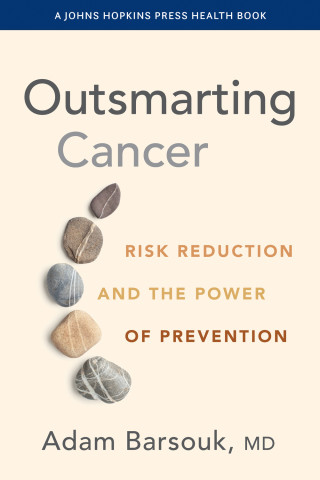
Reviews
If you have a depressed teen in your household, this book is a must-read.
Because of its specialization, this book will provide significantly more applicable information than any general psychology text that covers a variety of mental health disorders.
The book is comprehensive and thorough at almost 400 pages, providing a wealth of information on depression and its relevance to this vulnerable group.
I heartily recommend this book to parents and relatives of adolescents who have or may have mood disorders. It... helps parents to understand the complexities of the problem [and] is optimistic of the likelihood of improvement with correct diagnosis and treatment.
An outstanding work that surpasses anything else I have read for parents on clinical depression and bipolar disorder in teenagers.
Clear, medically precise terminology, drawings, and diagrams.
This is an intelligent and well-written work with a substantial amount of detail especially about medications and how they work.
As I prepared this brief review, I found myself advising families to obtain their own copy of Dr. Mondimore's well-written, clear, and valuable book.
This well-written book is both comprehensive and scientifically rigorous. Dr. Mondimore makes the complex concepts and terms involved in the diagnosis and treatment of adolescent depression enormously accessible to the layperson.
Tired of all those guides for idiots and dummies? This book will provide some welcome relief... The author provides a solid reference tool for anyone who works with adolescents. It is highly recommended for education professionals as well as public libraries.
This is Dr. Mondimore's best book yet, thorough and comprehensive. He provides information that is vital for parents, pediatricians, and general practitioners trying to understand the behavioral symptoms of mood disorders in adolescents.
Book Details
Preface
Acknowledgments
Introduction
Part I
1. Depression
Normal and Abnormal Moods
The Symptom of Depression
The Syndrome of Depression
Associated Symptoms of Depression
Mood Disorders
The Chemistry of Mood
2
Preface
Acknowledgments
Introduction
Part I
1. Depression
Normal and Abnormal Moods
The Symptom of Depression
The Syndrome of Depression
Associated Symptoms of Depression
Mood Disorders
The Chemistry of Mood
2. Normal Adolescence and Depression in Adolescence
More on Symptoms
More on Adolescence
When Is Depression "Serious"?
3. The Mood Disorders of Adolescence
Psychiatric Diagnosis
Major Depressive Disorder
Dysthymic Disorder
Premenstrual Dysphoric Disorder
Bipolar Disorder
Controversies Surrounding Bipolar Affective Disorder in Children
Disruptive Mood Dysregulation Disorder
More on Diagnosis
The Importance of Treatment
4. Mood Disorders
What Is the DSM?
A Multiaxial Diagnostic System
Mood Disorder Categories in the DSM
Controversies in the Use of the DSM
Part II
5. Medication Issues in Adolescence
Pharmaceuticals and the FDA
Dose Adjustments and Other Differences for Young People
How Psychiatric Medications Work
6. Antidepressant Medications
Tricyclic Antidepressants
Selective Serotonin Reuptake Inhibitors
Other, New, Antidepressants
Monoamine Oxidase Inhibitors
Antidepressant Therapy
7. Mood-Stabilizing Medications
Lithium
Valproate (Depakote)
Carbamazepine (Tegretol)
Lamotrigine (Lamictal)
Other Mood Stabilizers
What Do Mood Stabilizers Treat?
Why, and How, to Use Mood Stabilizers in Depression
8. Other Medications and Treatments
Antipsychotic Medications
Controversies
Benzodiazepines
St. John's Wort
Omega-3 Fatty Acids and Fish Oil
Exercise
"Medical" Marijuana
Electroconvulsive Therapy
Other New Treatments
9. Counseling and Psychotherapy
The "Biology-Psychology" Split in Psychiatry
Is Psychotherapy Alone Sufficient?
Is Psychotherapy Always Necessary?
Matching the Psychotherapy to the Patient
Choosing a Therapy and a Therapist
The Psychiatrist-Psychotherapist
Part III
10. Attention-Deficit/Hyperactivity Disorder
What Is ADHD?
Treatment Issues
Mood Disorders and ADHD
Other Medications
Treatment for Your Child
11. Autism, Asperger's, and Related Disorders
Autism
Symptoms of Autism
Autism versus Asperger's Syndrome
Autism and Mood Disorders
Approaches to Treatment of the Child Who Has Autism
12. Alcohol and Drug Abuse
Adolescent Substance Abuse
Alcohol Abuse
Marijuana Abuse
Amphetamines (Crystal Meth, Ecstasy, and "Club Drugs")
Mood Disorders and Substance Abuse
Treatment Issues
13. Eating Disorders
Anorexia Nervosa
Bulimia Nervosa
Understanding Eating Disorders
Mood Disorders and Eating Disorders
14. "Cutting" and Other Self-Harming Behaviors
Self-Mutilation
Adolescent Suicide
15. The Genetics of Mood Disorders
Genes, Chromosomes, and DNA
Genetic Diseases
What We Know
The Search Continues
Part IV
16. Strategies for Successful Treatment
Diagnosis, Diagnosis, Diagnosis
Choosing the Treatment Team
Eliminating Pathological Influences
17. The Role of the Family
Recognizing Symptoms
Getting Involved in Treatment
Safety Issues
Arranging Hospitalization and Involuntary Treatment
Getting the Support You Need
18. Planning for Emergencies
Know Whom to Call for Help
Insurance Issues
More on Safety
19. Looking Ahead
Resources
Suggested Reading
Support and Advocacy Organizations
Internet Resources
Notes
Index






